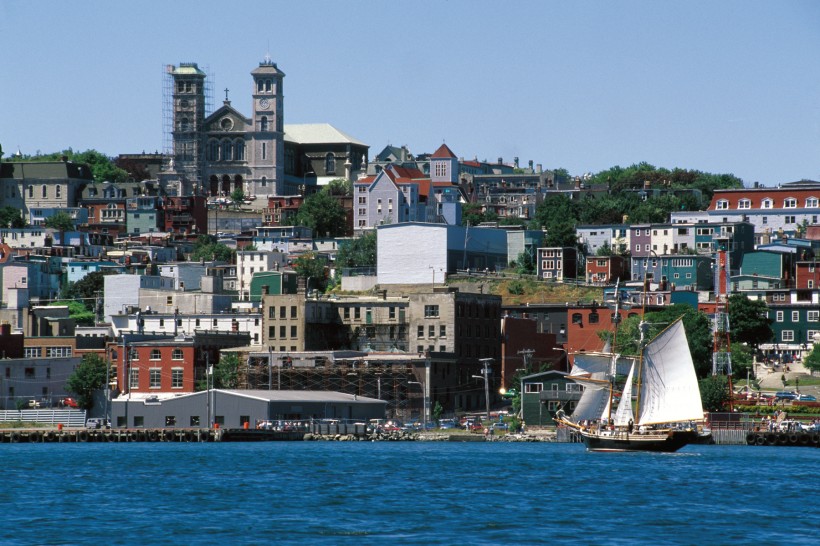There have been two main trends in the Newfoundland and Labrador startup community in recent years – the flood of new companies, and the accelerating advance of its most successful ventures.
This is rare. Some communities do a great job of nurturing their best companies, but without bringing in a new wave of entrepreneurs. Others continue to encourage and train new entrepreneurs, while their existing companies have trouble growing.
The startup community in Newfoundland and Labrador is advancing on both fronts, with established companies making strong gains and new companies sprouting up. And Genesis, the Memorial Centre for Entrepreneurship, or MCE, and Bounce Health Innovation have all added or enhanced programs to improve an ecosystem that has already drawn applause from its constituents.
“It’s one of the best ecosystems for startups that I’ve ever seen,” said Matias Nielsen, a native Dane who has launched his ecommerce support company Oliver POS in St. John’s.
According to data collected by Entrevestor, Newfoundland and Labrador in 2018 launched 24 new companies, more than ever before. It means the province has the youngest startup community in the region – 55 percent of the NL companies we’re following were one or two years old as of the end of 2018. It will likely mean more failures going forward as most of these new companies have yet to go through the rigours of the marketplace, but it will no doubt produce some successful ventures as well.
There are three reasons for this spike in company launches. First, Genesis has upped its game in the last few years, moving from the university’s main campus to the Emera Innovation Exchange. In 2019, it has also taken over the Common Ground co-working space in central St. John’s and launched a $775,000 micro-investment fund. These moves have tripled the organization’s capacity, and made it a member of the broader community rather than part of MUN. The overall effect has been a wider outreach to more entrepreneurs. Genesis’ Evolution program for pre-seed companies has now been going for several years and is helping young companies find product-market fit.
Second, the MCE has done a great job of helping Memorial students develop ideas for companies and provide early-stage mentorship. It provides initial funding through the Woodward Cup competition, which in early 2019 handed out $35,000 in prize money to five companies.
MCE Seeks Entries for 2020 Woodward Cup
MCE is also involved in the third factor – the Bounce Health Innovation. Bounce is a collaborative effort between MCE, Eastern Health, the MUN Faculty of Medicine and the Newfoundland and Labrador Association of Technical Industries, or NATI. The Bounce process starts with participants asking Eastern Health what problems the province’s biggest health authority is facing. Once they’ve identified a problem, they bring together innovators to try to find a solution.
Take for instance BreatheSuite, a company that aims to improve the use of inhalers. CEO Brett Vokey started the company during a work term for his engineering degree. Going through the Bounce process, he learned that too many people don’t use inhalers properly, rendering them all but useless. The structure of Bounce allowed the engineer to understand this medical problem and work toward a marketable solution. BreatheSuite closed a $550,000 equity funding round in 2019.
This improved ecosystem for launching companies is underpinning a community that is producing some remarkable ventures.
The clearest indication of the growth was the announcement in the fall of 2019 that Verafin had raised $515 million in equity and debt financing, the largest raise of growth capital ever by a Canadian tech company. St. John’s-based Verafin, which produces anti-fraud and anti-money-laundering software for financial institutions, now employs more than 500 people, and hit $100 million in annual recurring revenue in the first quarter of 2019.
But Verafin was not the only company making advances.
Sequence Bio and CoLab Software both entered the prestigious Y Combinator accelerator in Silicon Valley in the summer of 2019 – the only Atlantic Canadian companies to have done so. CoLab, whose software helps with collaboration in 3D design, later said it had raised $2.7 million in capital after Y Combinator.
St. John's-based Rally Raises $750,000 in Funding
We’ve classified nine NL startups as elite companies, and four as scaling. That means 12 percent of the startups in the province are in our top tiers for growth-stage companies.
Newfoundland and Labrador also has the smallest base of zombie companies in the region. According to Entrevestor’s analysis, only three companies (4 percent of all NL startups) are considered zombies, compared with the proportion for all Atlantic Canada of 12 percent.
In 2018, the funding for Newfoundland and Labrador came in at $8.4 million. That was less than half the $18.4 million reported in 2017, but is nonetheless a good level. Stripping out the Verafin private equity funding in 2014, the province had never produced more than $4 million in equity funding in any year before 2017.
The startups on The Rock also showed strong traction with revenues growing at a weighted average of 178 percent – more than double the figure for all of Atlantic Canada. Employment by these startups rose by 18 percent to more than 1,000 jobs as of Dec. 31 2018.
In 2019, there were auspicious signs for the outlook of early-stage financing in the province when Pelorus Venture Capital Director Chris Moyer announced the raising of a second Venture NL fund. “We would like to continue investing in Newfoundland and Labrador because we think it is a strong ecosystem,” said Moyer. “We think it is the strongest [ecosystem] in Atlantic Canada.”










